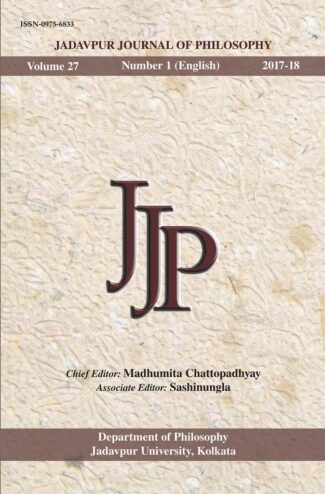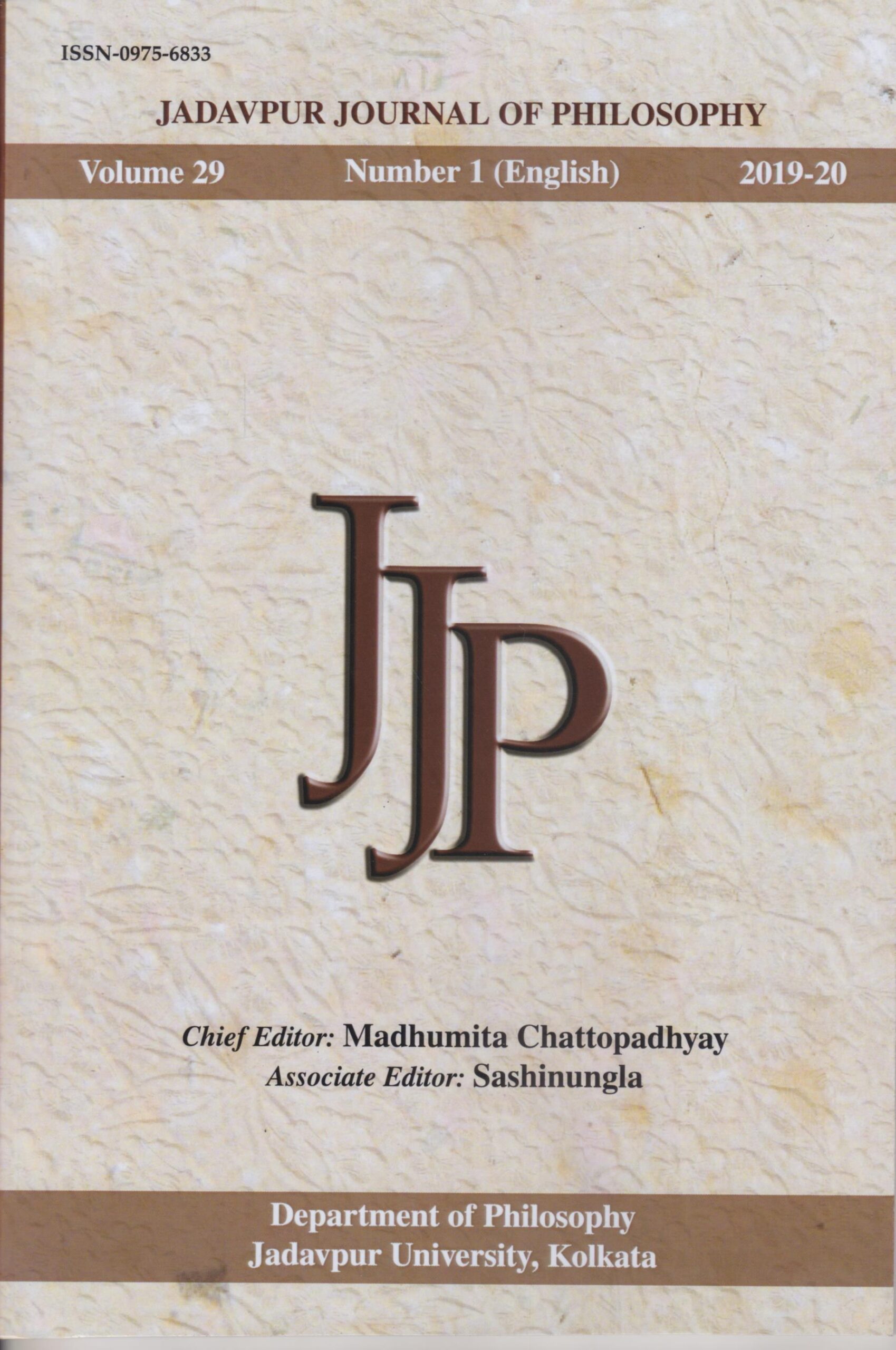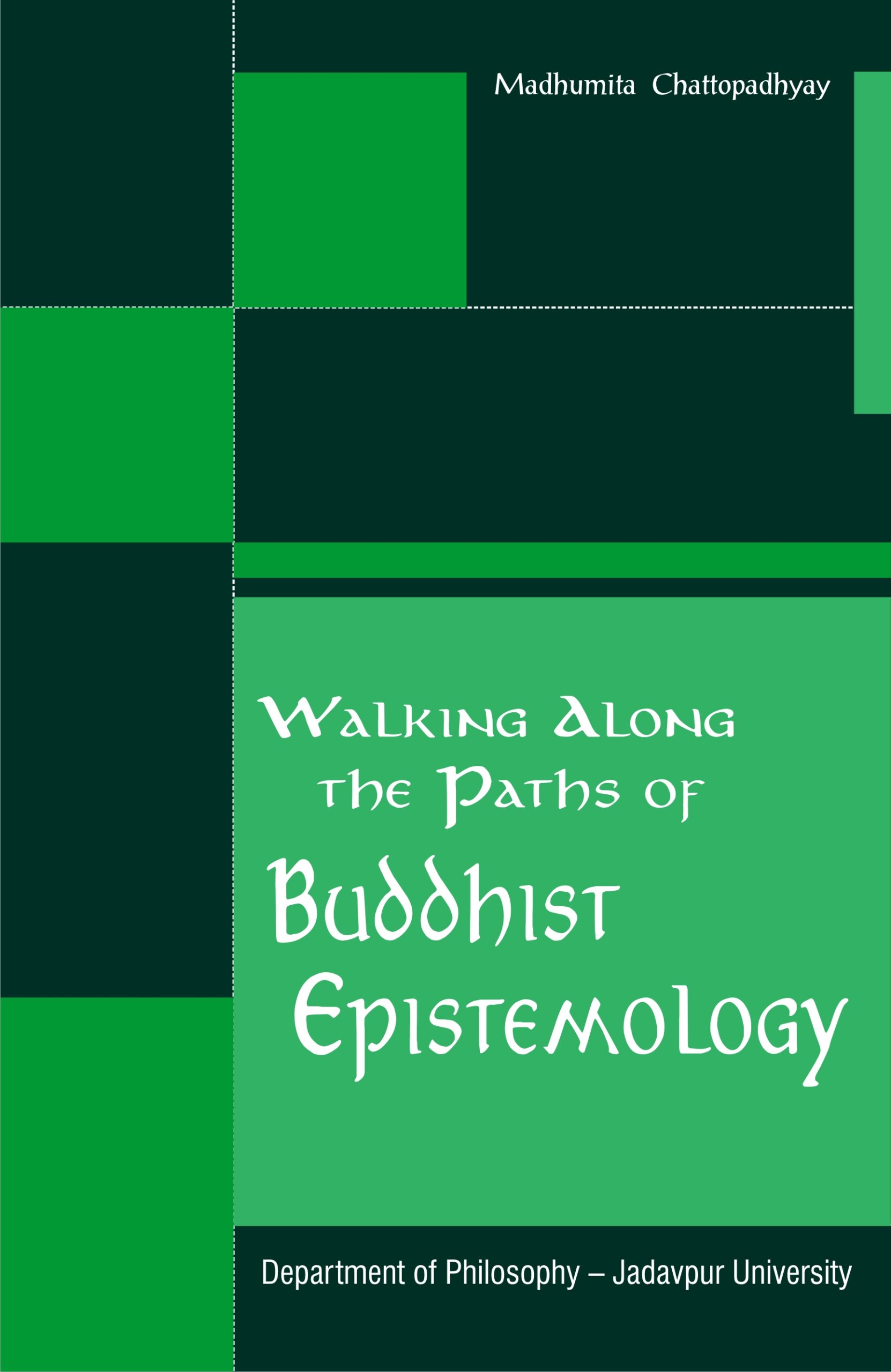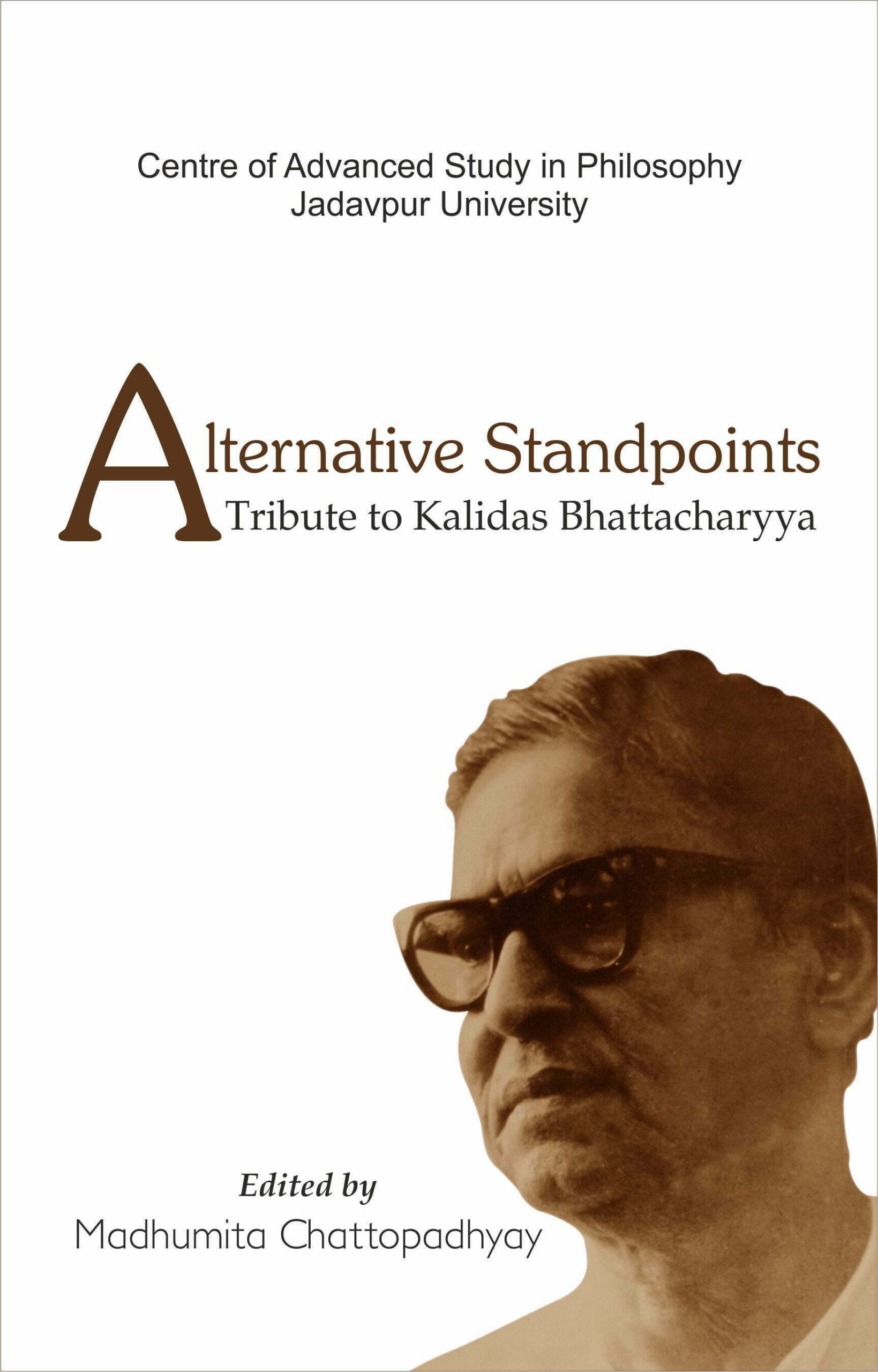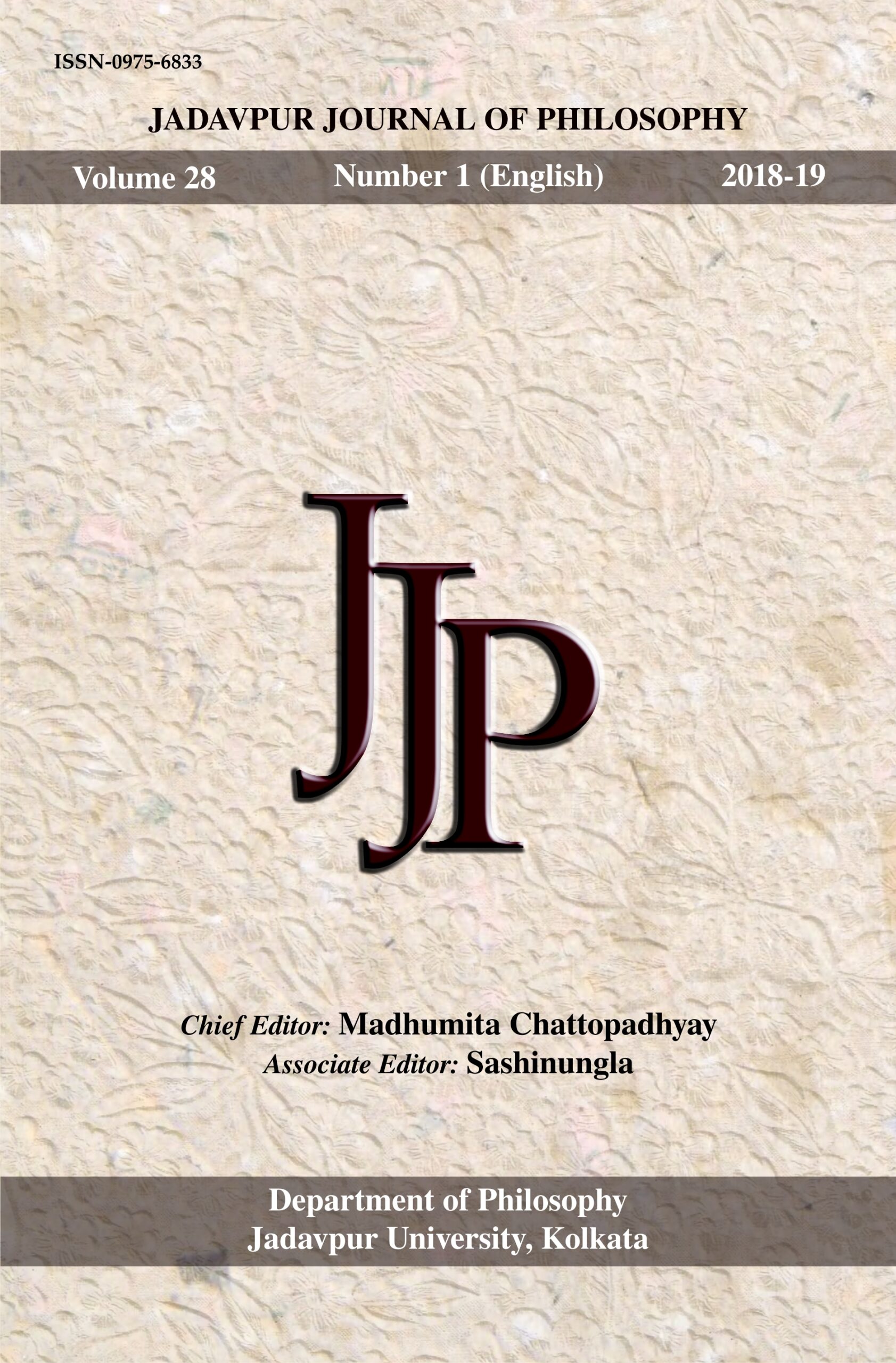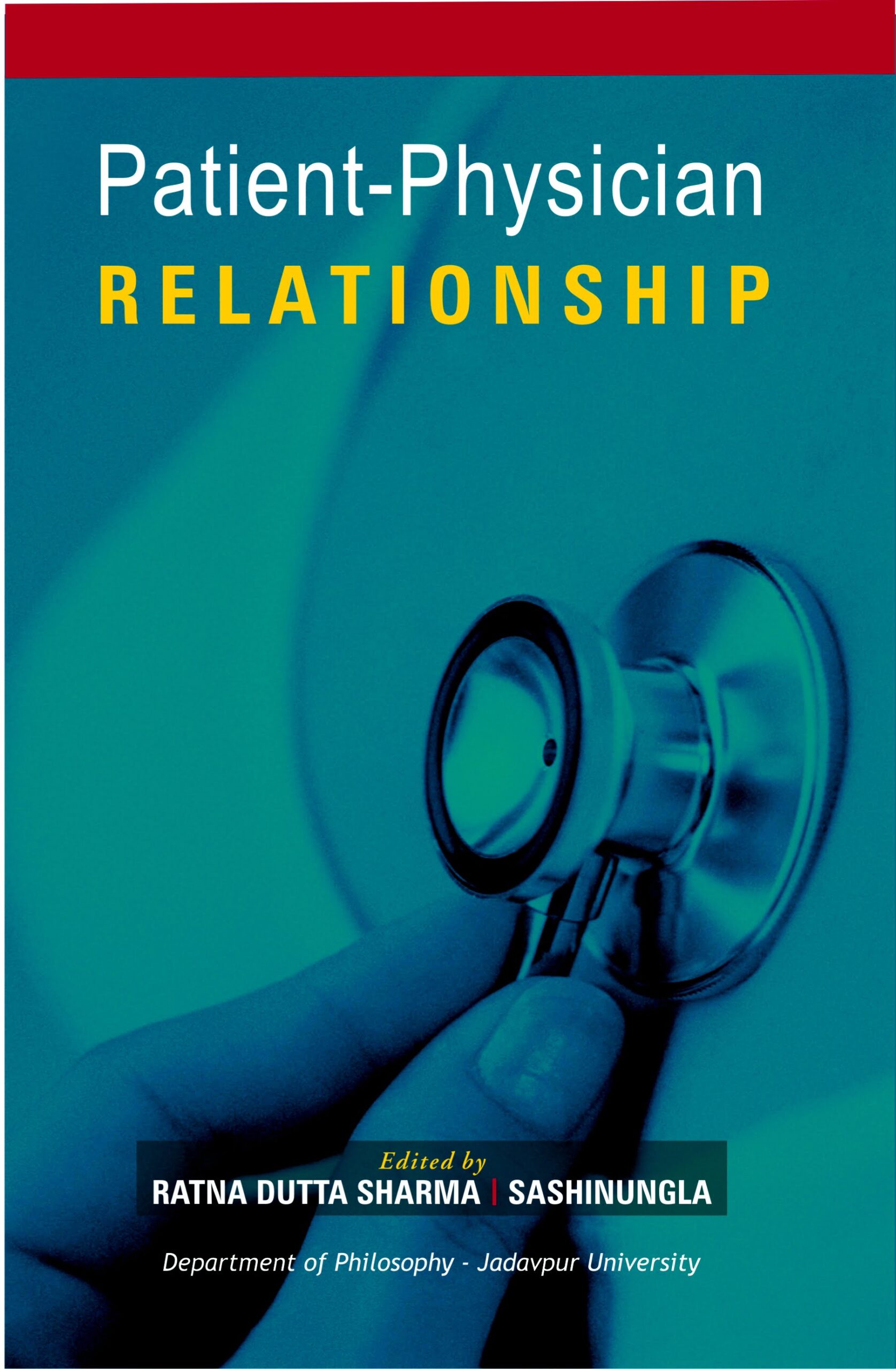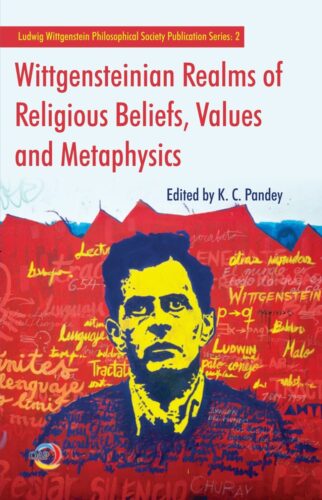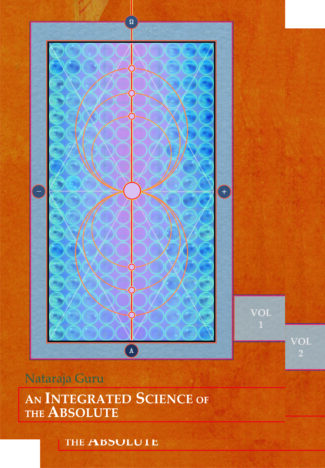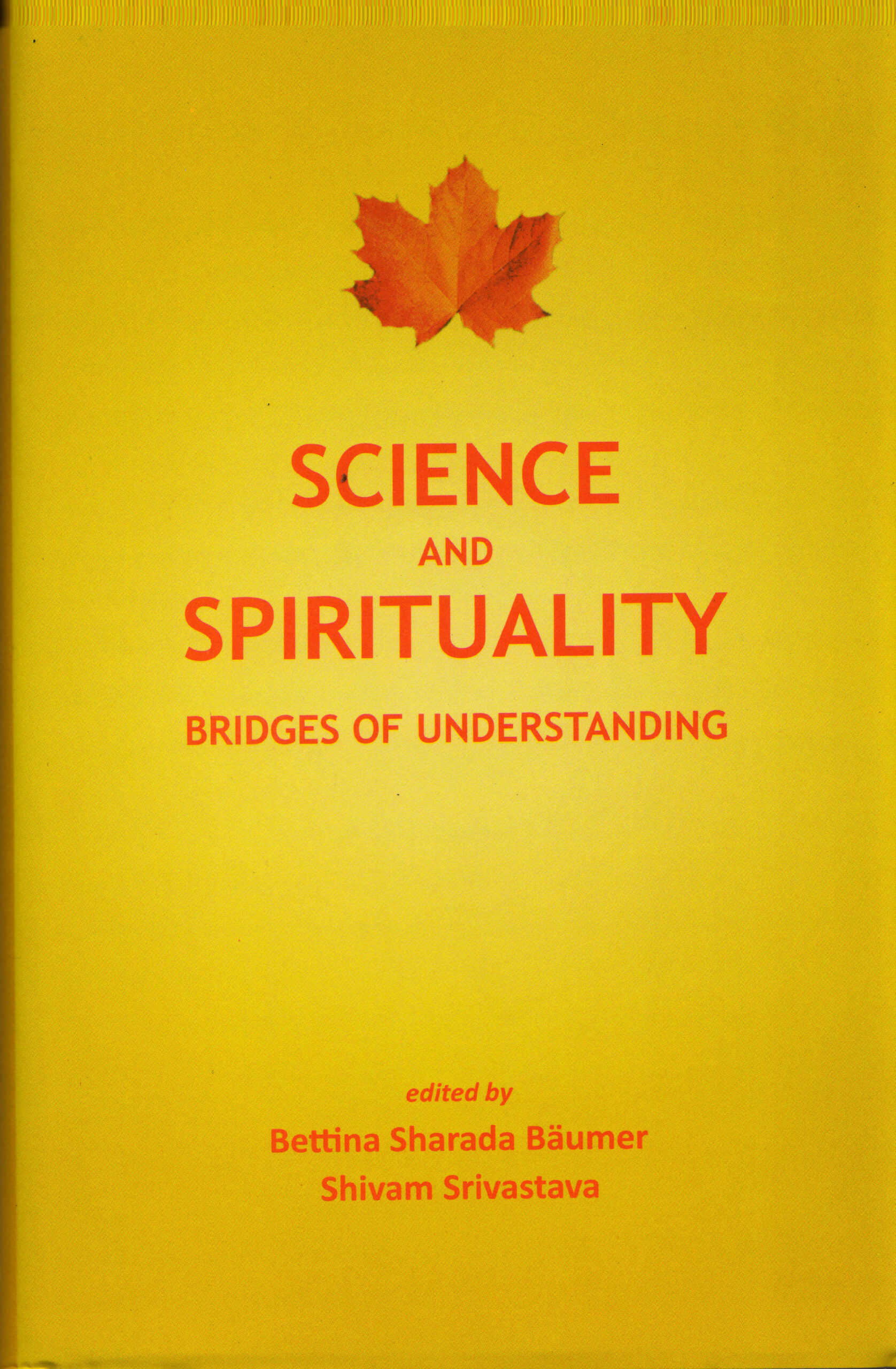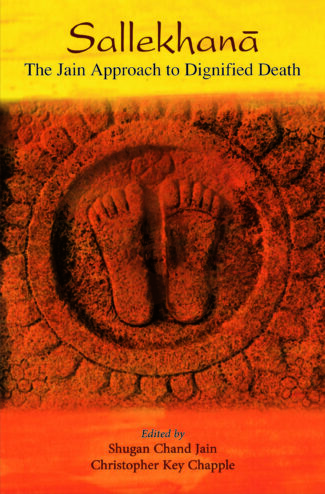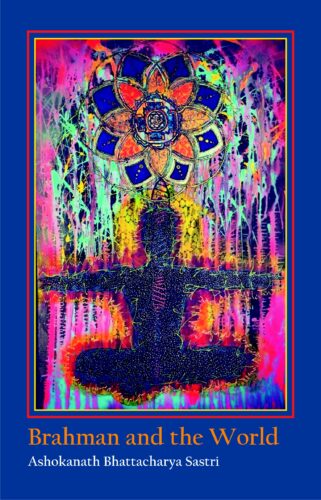

Jadavpur Journal No....
Jadavpur Journal No. 27
by: Madhumita Chattopadhyay , SashinunglaJadavpur Journal of Philosophy is a refereed, bi-issue journal, in English (No. 1) and Bengali (No. 2) published annually by the Department of Philosophy, Jadavpur University, Kolkata, India. The journal volume in Bengali is titled Darsan Biksa. The journal is devoted to the publication of original scholarly papers in any branch of philosophy. Its objective is to encourage contributions from scholars, dealing with specific philosophical problems connected with their respective fields of specialization.
₹300.00 Original price was: ₹300.00.₹270.00Current price is: ₹270.00.
ISBN: 9788100000786
Year Of Publication: 2018
Edition: 1st
Pages : 143p.
Language : English
Binding : Paperback
Publisher: Jadavpur University
Size: 23
Weight: 250
Jadavpur Journal of Philosophy is a refereed, bi-issue journal, in English (No. 1) and Bengali (No. 2) published annually by the Department of Philosophy, Jadavpur University, Kolkata, India. The journal volume in Bengali is titled Darsan Biksa. The journal is devoted to the publication of original scholarly papers in any branch of philosophy. Its objective is to encourage contributions from scholars, dealing with specific philosophical problems connected with their respective fields of specialization.
- Sale!Wittgensteinian Realms of Religious Beliefs, Values and Metaphysics by: K. C. Pandey
₹1,800.00Original price was: ₹1,800.00.₹1,620.00Current price is: ₹1,620.00.All that cannot be expressed in language, for early Wittgenstein, belong to the realm of Unsayable or Showable. Such a realm consists of religious beliefs, ethical values, aesthetics, metaphysics, solipsism, love, death among other aspects of life which language is incapable of depicting successfully. Later Wittgenstein did not insist on the inexpressibility of these realms as each of them has their own distinct form of life. In this background this anthology is an attempt to explore various facets of these aspects of Wittgensteinian philosophy through various elucidations and interpretations. It is classified into three sections, viz. “Religious Beliefs, Wittgensteinian Fideism, Religious Pluralism, and Cultural Debates”, “Absolute Value, Ethics, Aesthetics, Architecture” and “Subjectivism, Solipsism, Metaphysics, and Hermeneutics”. It aims at bringing out the current development in the field as found in the debates and discussions on Wittgensteinian philosophy in the contemporary philosophical world.
- Sale!An Intergrated Science of the Absolute (2 Vols. Set) by: Nataraja Guru
₹3,000.00Original price was: ₹3,000.00.₹2,700.00Current price is: ₹2,700.00.It is not just the magnum opus, but a truly monumental effort of a scientist-philosopher who has spent a whole lifetime to formulate a unitive science, wherein all disciplines of human questing could find a common ground a science where modern science and ancient spiritual wisdom could meet and merge like two opposite poles of a magnet. As a direct disciple of one of the great rishis of the modern age, Nataraja Guru discovers this common ground in Brahma-vidya, which he calls the Integrated Science of the Absolute, and which has, at its base, his Gurus Dars?ana Mala.
A string of hundred Sanskrit verses, composed by the mystic-poet, Narayana Guru (18541928), the Darsana Mala is the very epitome of all visions of truth inspired by his remarkable acquisitions of Upanisadic thought and, yet far more, by his own tapas (mystical discipline). Reproducing these highly significative verses in Roman script, along with English translations, word meanings, and extensive commentaries, Nataraja Guru not only spells out his mentors Visions of the Absolute in contemporary idiom, but also shows how these visions are fully validated by modern science.
Eclectic synthesis of varied scientific disciplines into a systematic whole is not all that Nataraja Guru accomplishes here. Rather, his book (now in third edition) is an attempt to reintroduce Brahma-vidya as the one Master Science that embraces every branch of science, every human interest. - Sale!Science and Spirituality by: Bettina Sharada Bäumer
₹1,000.00Original price was: ₹1,000.00.₹900.00Current price is: ₹900.00.A dialogue between science and spirituality is a necessity in our times where both, differences and mutual enrichment of the two great fields of human approach to reality, are taking place. This volume addresses this need from the perspective of different areas of science and spiritual traditions. The starting point is the intention of the founder of the IIAS, Dr S. Radhakrishnan, who saw that “both the practice of science and experience of spirituality are intimately related to being human”. Although much thought has gone into their relationship, the present volume intends to broaden and deepen the possibility of a harmonious integration, necessary to overcome the present-day crisis of humanity.
From the side of science, the contributors come from the fields of physics, plant biology, neuroscience, psychology, ecology and philosophy of science; and from the side of spirituality, following traditions and spiritual masters are represented: PÀtaðjala Yoga, Trika Œaivism of Kashmir, VedÀnta, Buddhism, Christianity, Theosophy, and Rabindranath Tagore, Swami Vivekananda and J. Krishnamurti. The deliberations included topics such as Awareness in plants, Neuroplasticity and Habit, appropriate use of terms such as “Consciousness” and “Energy” in different contexts, clarifying several issues concerning the on-going dialogue. The contributing scholars have built “bridges of understanding”, thus encouraging the reader to proceed further in this quest. - Sale!Sallekhana by: Shugan Chand Jain, Christopher Key Chapple,
₹1,200.00Original price was: ₹1,200.00.₹1,080.00Current price is: ₹1,080.00.Jainism regards life to be eternal. Recognizing that the soul can never die, but merely takes a new body, a careful tradition welcoming death through intentional fasting developed more than two thousand years ago. A legal challenge Rajasthan was put forward in 2013, suggesting that this practice is harmful and coercive and targets women in particular. For a short while Sallekhanā, which means the “thinning of existence,” was declared illegal. In response to this controversy, three conferences were convened by the International School for Jain Studies to explore the legal, religious, and medical aspects of this practice. Experts discussed the long history of the practice, attested to in epigraphs throughout India; the ways in which fasting to death has become an acceptable practice in the Western world; and contemporary instances of its observance in India. This volume presents an interdisciplinary approach to thinking about the end of life, from biomedical, historical, religious, and legal perspectives.
- Sale!Brahman and the World by: Ashokanath Battacharya Sastri
₹500.00Original price was: ₹500.00.₹450.00Current price is: ₹450.00.“The Vedānta has been rightly called the Finest Fruit of Indian Thought and the Upaniṣads as the Finer Flowers. Vedānta grows out of the teachings of the Upaniṣads and passes into the various systems in the writings of Śaṅkara, Bhāskara, Rāmānuja, Madhva and Vallabha, the great founders of Advaita, Bhedābheda, Viśiṣṭādvaita, Dvaitādvaita and Śuddhādvaita, respectively. However, there is a perception among Orientalists that while the Upaniṣads favour the Monistic doctrine, Bādarāyaṇa’s Brahmasūtra fundamentally opposes it on some of the most crucial points.
The book thus delves deep into the philosophies of both Bādarāyaṇa and Śaṅkara in enunciating the essential features of Brahman and Its association with the world. It thus discusses topics such as what sort of cause Brahman is?, and what sort of material causality is to be ascribed to It? It also addresses the conflicting views on the nature of Brahman like that of Vivarttavāda and of Rāmānuja’s Saguṇa-Brahman.
This book proposes to take up the question of Universal Causation to examine thoroughly as how far it is right to regard Brahman as the Universal Cause and how far sūtrakāra himself lent his support to each of the inter-conflicting schools of Vedānta. This book should, therefore, benefit all who are devoted to the philosophic teachings of Advaita Vedānta and its preceptors.”


